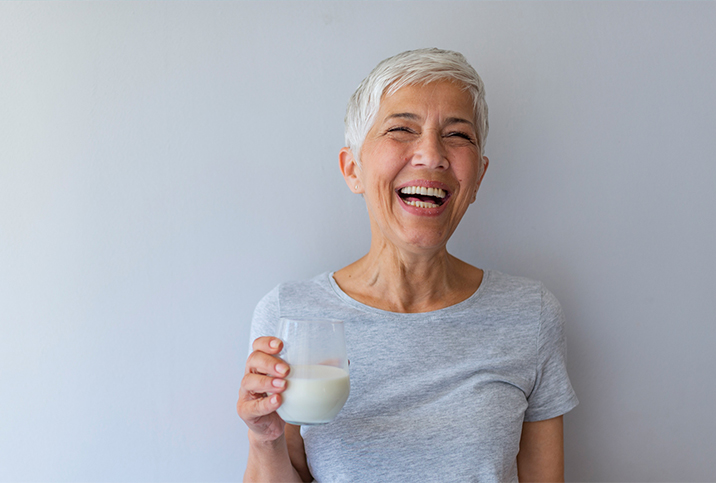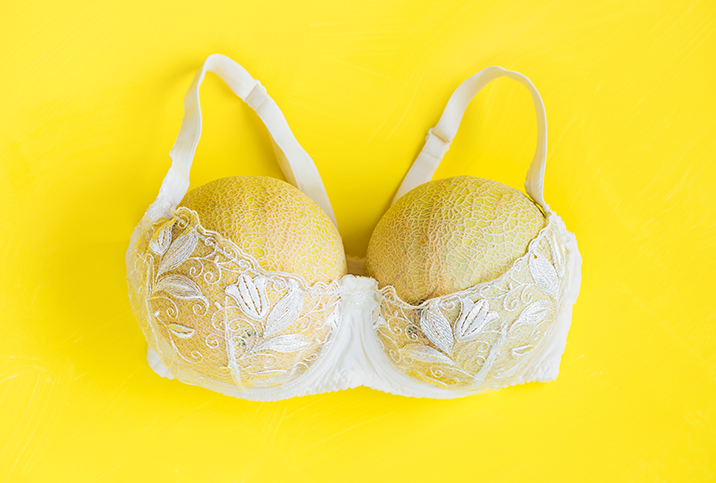Menopause: Myths & Misconceptions

The reality of menopause can be challenging enough without having to deal with the added stress of false (and even ridiculous) information. Menopause doesn't arrive one day fully formed and predictable, and it doesn't change you into a different person.
Let's set the record straight regarding "the change" by debunking some of the common myths that serve to misinform women.
Myth: Hormone therapy is dangerous.
Reality: Hormone replacement therapy (HRT) has many pros and cons. It's true that studies have indicated an increased risk of stroke, heart disease, blood clots and breast cancer for women prescribed HRT. Risks are greatest for women older than 60 and women starting hormone therapy more than 10 years after the onset of menopause. But informed discussions with your doctor will help you determine whether the multiple benefits—reduced physical symptoms and prevention of osteoporosis foremost among them—outweigh your risks. Risks can be reduced by minimizing the amount and duration of HRT, exploring product and delivery methods, engaging in regular follow-up care and maintaining a healthy lifestyle.
Hormone therapy is not the only treatment option for menopause. Alternatives (some of which are not tested or approved by the Food and Drug Administration) include lifestyle changes, vaginal creams, moisturizers and lubricants, black cohosh for hot flashes, vitamin D, acupuncture, mindful breathing, St. John's wort, ginseng and yoga.
Myth: Menopause will cause me to gain weight.
Reality: Hormonal changes can cause a redistribution of weight, including increased pounds around the abdomen and thighs, but menopause itself is not associated with weight gain. Rather, aging, in general, can be the culprit, based on metabolic change, genetic factors, muscle mass and lifestyle. Weight gain during menopause is typically associated with other contributing factors—poor diet and sleep, stress—most of which can be treated.
Myth: Eating soy products will treat menopause symptoms.
Reality: Soy is a good supplement to help treat menopause symptoms (hot flashes, vaginal dryness, anxiety, irritability, osteoporosis), but soy isoflavones are only one-third as effective as estrogen hormonal therapies in treating hot flashes.
Soy products—tofu, soy milks and yogurts, edamame, tempeh, soybeans, soy sauce—bind estrogen receptors in the body and have either weak estrogenic or anti-estrogenic activity, depending on age, ethnicity and other factors. While research is ongoing, studies suggest soy may have an anti-estrogenic effect in premenopausal women, and cause estrogenic activity in postmenopausal women. Consistent soy intake has also been shown to reduce inflammatory proteins related to menopause. But soy alone isn't typically sufficient to treat menopause symptoms in most women.
Myth: I will get hot flashes and night sweats.
Reality: While this is true for some women, it's not true for all. Up to 25 percent of women don't experience hot flashes, and many women are able to reduce or completely stop them via hormonal treatments and/or alternative methods, like soy consumption. It's not clear why some women don't get hot flashes, but research indicates not smoking and maintaining a healthy body weight can reduce your chance of getting them. Ethnicity may also play a role: Asian women report the fewest hot flashes, Black women the most.
Myth: My sex life is over once I hit menopause.
Reality: Life in the bedroom doesn't have to be dull just because you're going through "the change." In fact, many women find a new lease on their sex life following menopause, with no further worries about unwanted pregnancy. That, combined with therapies to treat symptoms and an evolving social consciousness to decrease pressure on women of a certain age to look and act younger, can make the years after menopause the best years of a woman's life.
Yes, menopause can cause a number of physical symptoms that might make sex uncomfortable: hot flashes, vaginal dryness, itchiness, burning, vaginal atrophy and pain during intercourse. And, yes, menopause can also affect women emotionally, increasing moodiness and reducing libido, both likely to make them even less apt to be up for sex. In fact, 68 to 85.6 percent of postmenopausal women report sexual problems, compared to 25 to 63 percent of all women.
The good news? HRT and other hormonal treatments can increase estrogen and reduce menopausal symptoms. Vaginal creams and lubricants, lifestyle changes (exercise, healthy diet, stress relief, water-based lubricants, increased foreplay and sex toys), and home remedies (red clover, soy) can help boost libido. Discussions with your doctor and/or a sex therapist also can be beneficial.


















